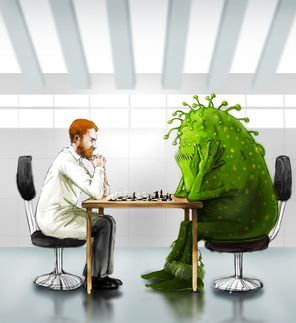Superbugs may have a soft spot, after all
Advertisement
The overuse of antibiotics has created strains of bacteria resistant to medication, making the diseases they cause difficult to treat, or even deadly. But now a research team at the University of Rochester has identified a weakness in at least one superbug that scientists may be able to medically exploit.
Biologists Gloria Culver at Rochester and Keith Connolly, now at Harvard University, thought one key to stopping the bacteria may lie with proteins, so they studied the mechanism behind the development of bacterial ribosomes —the cell's protein-manufacturing machine.
"We targeted the ribosomes in our research because cells and organisms can't live if they don't make proteins, and they can't make proteins if their ribosomes aren't functioning properly." said Culver.
Culver and Connolly specifically worked with cultures of E. coli, a bacteria commonly found in the intestines. While E. coli is usually harmless, some strains are resistant to antibiotics and can cause serious food poisoning.
They discovered that two proteins already present in E. coli cells — RbfA and KsgA — need to be in balance with each other in order for ribosomes to function. If those proteins are present in the wrong concentrations, the ribosomes will not mature properly and will be unable to produce proteins, leading to the death of the cells. Their findings are being published this week in the journal Molecular Microbiology.
Culver said with the discovery that KsgA and RbfA.must be balanced for the cells to function properly, the next goal is to determine an effective way to disrupt that balance.
Crucially, RbfA does not exist in humans. "That may make it possible," Culver said," to kill E. coli without having a harmful effect on people."
Most read news
Other news from the department science

Get the life science industry in your inbox
By submitting this form you agree that LUMITOS AG will send you the newsletter(s) selected above by email. Your data will not be passed on to third parties. Your data will be stored and processed in accordance with our data protection regulations. LUMITOS may contact you by email for the purpose of advertising or market and opinion surveys. You can revoke your consent at any time without giving reasons to LUMITOS AG, Ernst-Augustin-Str. 2, 12489 Berlin, Germany or by e-mail at revoke@lumitos.com with effect for the future. In addition, each email contains a link to unsubscribe from the corresponding newsletter.

























































